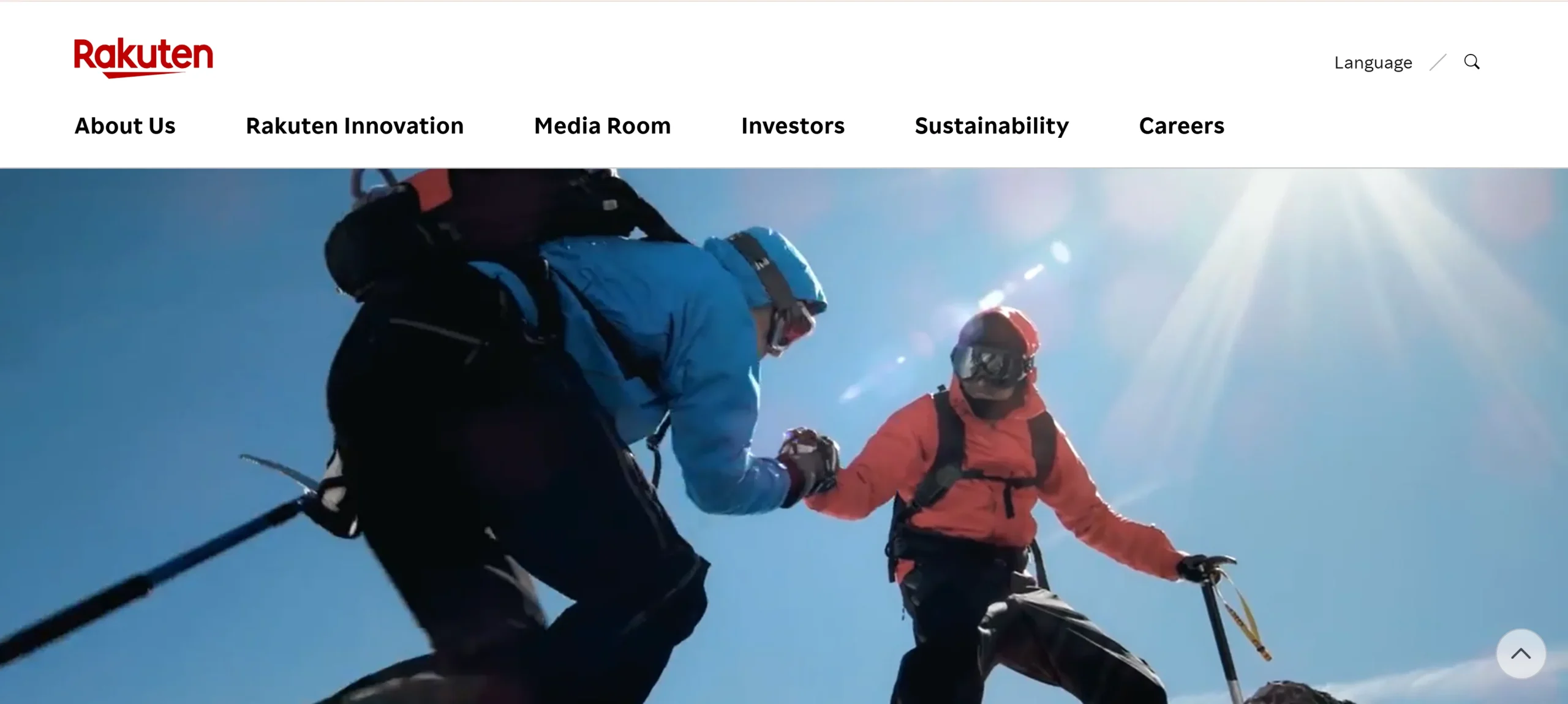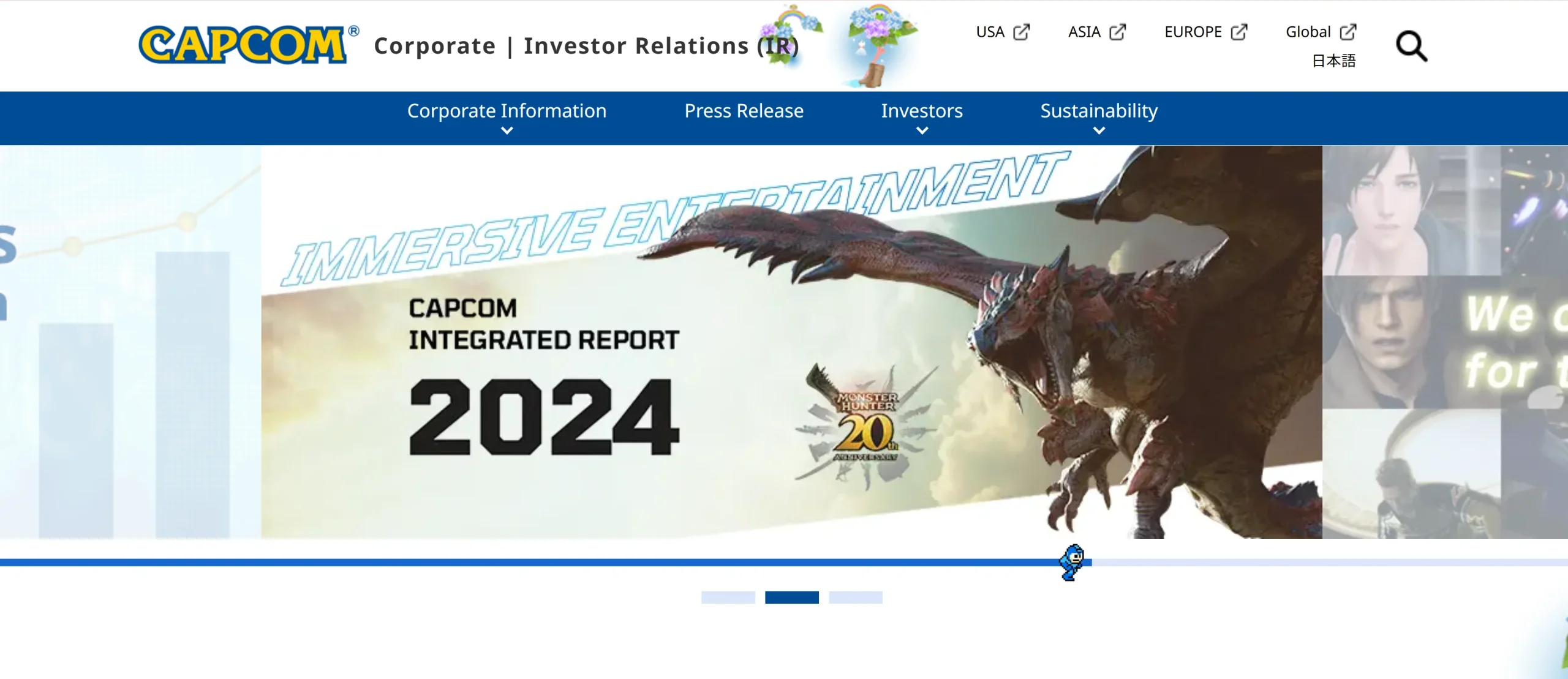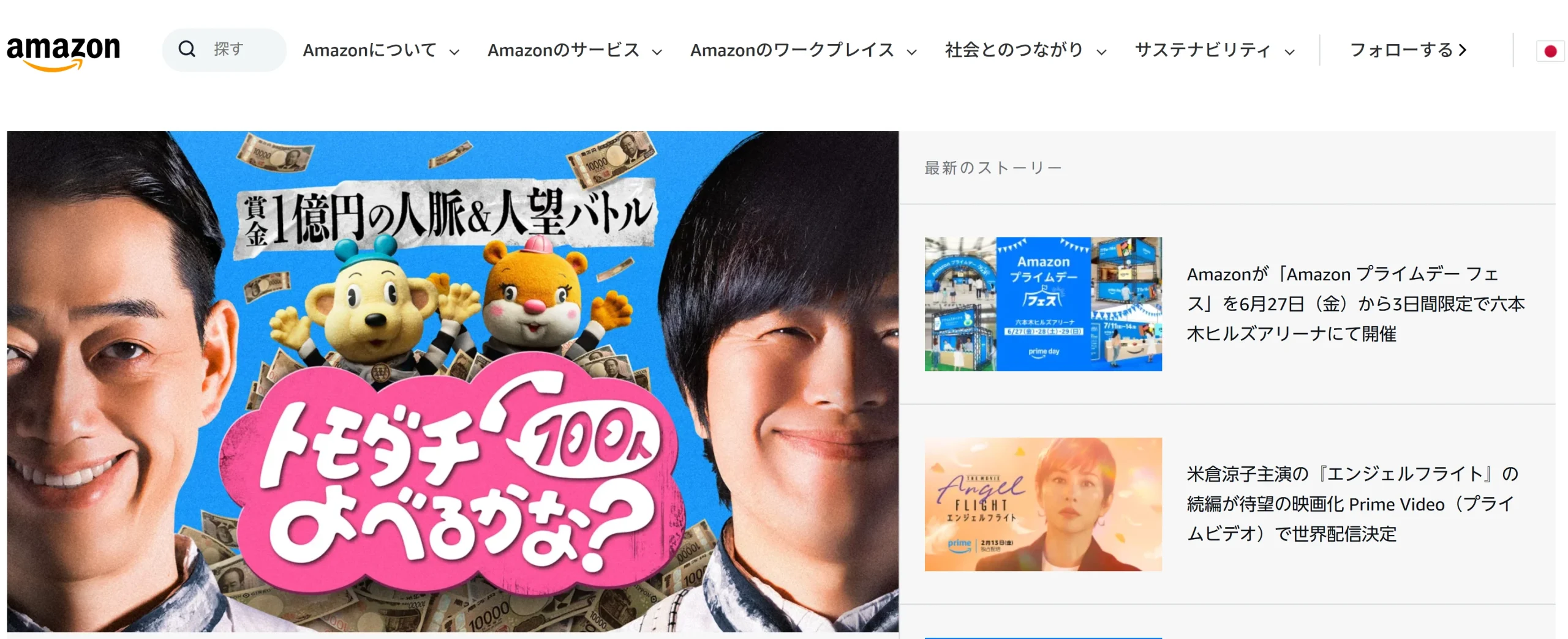As globalization advances, recruiting and retaining foreign talent has become a critical challenge for Japanese companies.
This article presents the “Top 10 Japanese Companies Foreign Talent Want to Work For” while introducing common characteristics of top companies, key success factors for foreign professionals seeking employment, and case studies of initiatives that improve retention rates.
We provide valuable information for foreign engineers who want to overcome language and cultural barriers and build careers in Japan.
- The top 10 Japanese companies foreign talent want to work for and why.
- Seven key factors foreigners consider when choosing Japanese employers.
- Practical strategies for succeeding at Japanese companies as foreign talent.
1. Current Situation and Challenges for Foreign Engineers Seeking Employment in Japanese Companies

In recent years, the number of foreign workers in Japanese companies has surged dramatically. Against the backdrop of labor shortages due to an aging population and declining birthrate, along with corporate globalization needs, recruitment of highly skilled foreign professionals is accelerating.
However, there are also unique challenges faced by foreign talent, including language barriers, cultural differences in job hunting practices, and visa-related issues.
Here, we analyze the current state and challenges of foreign talent employment in Japanese companies from multiple perspectives, providing detailed explanations of changing recruitment trends.
Increasing Trends and Background of Foreign Workers in Japan
The number of foreign workers in Japan has increased rapidly in recent years. In particular, foreign talent in highly skilled professional positions is on the rise, with labor shortages due to an aging population and declining birthrate considered to be the underlying cause.
The Japanese government has formulated the “Advanced Foreign Human Resources Promotion Program” implementing successive measures to promote the acceptance of excellent foreign talent, including relaxed visa requirements, creation of “Highly Skilled Professional” status, and extended periods of stay.
Notably, the Ministry of Economy, Trade and Industry’s “Asia DX Human Resources Development Project” contributes to acquiring IT talent from Asian countries.
Additionally, Japanese companies’ globalization needs are increasing, with foreign talent recruitment advancing for the purpose of accelerating overseas expansion and strengthening competitiveness through the introduction of diverse perspectives.
Reference: Ministry of Economy, Trade and Industry: Asia DX Project
Barriers Faced by Foreign Talent in Job Hunting
Foreign talent seeking employment in Japanese companies face multiple barriers.
The biggest obstacle is the language barrier. Most Japanese companies commonly require business-level Japanese proficiency (JLPT N2 or higher) for internal communication and customer service.
Small and medium-sized enterprises, in particular, often lack well-established English environments, requiring high Japanese language proficiency.
Next is the cultural difference in job hunting practices. Japan’s unique new graduate batch hiring system, “job hunting” schedules, entry sheets, and group interviews – these Japan-specific recruitment processes can be difficult for foreign nationals to understand.
Moreover, evaluation criteria that emphasize abstract elements such as “enthusiasm” “cooperativeness” and “personality” differ significantly from international recruitment standards that prioritize career and specific skills.
Furthermore, visa (residence status) issues pose significant barriers. To obtain a work visa, university-level education and specialization are required, with restrictions limiting work to specific occupations.
The complexity of residence status renewal procedures and restrictions during job changes also make career development difficult for foreign talent.
Reference: Japanese Language Proficiency Test JLPT: Certification Guidelines
Changes in Foreign Talent Recruitment by Japanese Companies After COVID
After the pandemic, foreign talent recruitment by Japanese companies has undergone both qualitative and quantitative changes. The most notable change is the relaxation of geographical constraints due to the proliferation of remote work.
Even positions that previously required residence in Japan have seen increased utilization of foreign talent living overseas through cross-border recruitment and implementation of “cross-border telework.”
Recruitment processes have also become increasingly digital, with online interviews and virtual internships making it easier to access talent both domestically and internationally.
IT companies, in particular, have seen an increase in companies promoting “full remote recruitment,” expanding efforts to secure excellent talent regardless of location.
Additionally, the wave of digital transformation (DX) accelerated through the COVID pandemic has further increased demand for foreign talent in IT and digital fields.
In specialized fields such as programming, data science, and AI, there has been a shift toward recruitment policies that prioritize expertise over Japanese language ability, with an increasing number of companies adopting the stance that “Japanese is not essential if you have technical skills.”
Reference: Ministry of Economy, Trade and Industry: Industry DX
2. Top 10 Japanese Companies Foreign Talent Want to Work For

Based on various perspectives, we introduce the top 10 Japanese companies most highly rated by foreign professionals as places they want to work.
We provide detailed explanations of each company’s global expansion status, foreign talent recruitment and development systems, English environment preparation, career development opportunities, and other specific elements that make them attractive to foreign talent.
By analyzing the common characteristics of these companies, we can identify the conditions that make companies attractive to foreign professionals.
Toyota Motor Corporation

Toyota Motor Corporation is characterized by its strong corporate culture called “Toyota Way” and global brand power.
As the core of global business, it supplies products to approximately 170 countries worldwide and has research, development, and production bases around the world, including North America, Europe, Asia, and Africa.
The number of employees reaches approximately 350,000 (consolidated basis), with about 30% working outside Japan.
Why Toyota is Supported by Foreign Talent
Comprehensive career development opportunities can be cited. The “Global Training Program” conducts training that brings together excellent talent from around the world, fostering international perspectives and leadership.
The “Toyota Global Human Resources Development System” provides systematic career path presentation and professional development support regardless of nationality.
Technical Aspects
The ability to learn production methods known as the “Toyota Production System (TPS)” and the philosophy of “Kaizen (improvement)” is a major attraction.
These are globally recognized management methods originating from Japan, and they hold high international value as skill sets for engineers and business professionals.
Furthermore, Toyota’s current transformation into a “Mobility Company” offers abundant opportunities for challenges in cutting-edge fields such as MaaS (Mobility as a Service), autonomous driving, AI, and robotics, beyond traditional automobile manufacturing.
Support System for Foreign Employees
A system is in place for total support of life establishment in Japan, including visa procedure assistance by specialized teams, housing procurement support, Japanese language training programs, and multilingual information provision.
These initiatives lead to high employee satisfaction and support from foreign talent.
Rakuten Group, Inc.

Rakuten is a representative global company in Japan, known for making English the internal corporate language in 2010.
Under CEO Hiroshi Mikitani’s “Englishnization” policy, an environment has been established where all internal communication is conducted in English, enabling diverse talent to thrive without dependence on Japanese language ability.
Rakuten’s Foreign Environment
Currently, approximately 20% of all Rakuten Group employees are foreign nationals, with a multinational environment realized where people from over 70 countries work.
Particularly in engineer recruitment, the ratio of foreign employees is high, with 70-80% of newly hired engineers being foreign nationals, creating a highly diverse organizational structure.
This high level of diversity contributes significantly to innovation creation and enhanced adaptability to overseas markets.
Rakuten’s Appeal
It’s not just about having an English environment. Under the slogan “Diversity × Technological Innovation,” they develop initiatives such as the “Rakuten Super Innovator System” and “Rakuten Technology Conference” that allow excellent talent to demonstrate their abilities regardless of nationality.
In particular, diverse business areas including internet services, fintech, mobile, e-commerce, sports, and entertainment provide fields where specialists with various backgrounds can thrive.
Support for Foreign Talent
Initiatives to improve retention rates of foreign talent are also comprehensive.
Support systems are established for work and life aspects, including dedicated consultation windows, housing arrangement support, Japanese culture understanding programs, and community formation support including families.
Capcom Co., Ltd.

Capcom is a game company that has created many global hits such as “Monster Hunter” “Resident Evil” and “Street Fighter”
Product development for global markets is the main focus, and incorporating diverse cultural perspectives into product planning is the company’s strength.
In recent years, they have been actively recruiting foreign talent, achieving top-class diversity in the Japanese game industry with 5% foreign nationals and 20% women among developers.
Characteristics of Capcom’s Foreign Recruitment
The purely ability-focused recruitment policy that doesn’t establish “foreign quotas” or “women quotas”
Under the philosophy that “new creation emerges from the collision of diverse values” the company fosters a culture where people with different backgrounds exchange opinions on equal footing, leading to innovative game development.
In game planning and development for global markets, the perspectives of foreign talent are highly valued as “viewpoints, ideas, and sensibilities that Japanese people don’t have”
Capcom’s Development Environment
In game development processes premised on global deployment, English communication is fundamental, and borrowing from a developer’s words that “programming languages are also English,” it can be said that language barriers are relatively low if you have technical skills.
Additionally, the establishment of collaborative environments using digital tools and flexible implementation of remote work support diverse work styles.
Initiatives to Improve Employee Retention
Initiatives to improve retention rates of foreign talent and female employees are also comprehensive. Systems are established to enable flexible work styles according to life stages, including flex-time systems, telework systems, and childcare/nursing care support systems.
Particularly noteworthy is the increase in “working mother creators” with high figures such as an 85% maternity leave utilization rate for women and a 100% return rate from maternity/childcare leave, indicating successful environment creation where diverse talent can thrive.
Amazon Japan G.K.

Amazon Japan is characterized by its innovative corporate culture and comprehensive English environment. Under the philosophy of being “Earth’s Most Customer-Centric Company” professionals of diverse nationalities collaborate to develop and operate innovative services.
Amazon’s core corporate culture, the “Leadership Principles” is universal worldwide, providing an environment where people can work with the same values and evaluation standards regardless of nationality.
Amazon’s Appeal
One of Amazon’s attractions is the opportunity to build careers on a global platform. Japan’s operations are part of Amazon’s global network, offering abundant opportunities to participate in international projects and potential transfers to overseas bases.
The international rotation program called “Inside Amazon” allows accumulation of work experience at Seattle headquarters and other global offices, providing an attractive environment for foreign talent aiming for international career formation.
Technical Fields
Many cutting-edge initiatives exist, with projects involving the latest technologies such as AWS (Amazon Web Services), AI/machine learning, robotics, and drone delivery.
Particularly in technical roles, work in English environments is fundamental, with recruitment that prioritizes expertise over Japanese language ability.
Amazon’s Foreign Talent Retention Support
In terms of retention support for foreign talent, relocation packages, visa support, initial setup support for housing search and bank account opening, and Japanese language/culture training are provided.
Additionally, efforts are made to foster an inclusive corporate culture through community formation support and multicultural understanding workshops. Through these initiatives, an environment is established where people can build long-term careers while demonstrating their expertise.
Shiseido Company, Limited

Shiseido is a global beauty company operating in approximately 120 countries and regions worldwide.
While being a representative Japanese company with over 150 years of history since its founding, it actively promotes globalization by formulating “WIN 2023 and Beyond” and furthermore, a “VISION” toward 2030.
The current overseas sales ratio has reached over 60%, with a clear vision to become number one in the skincare beauty field by 2030.
Why Shiseido is Evaluated by Foreign Talent
The establishment of a global management system. Transformation into a truly global company is progressing, including increasing the ratio of foreign executives, strengthening global headquarters functions, and establishing regional management systems.
In particular, the management model with a three-tier structure of “Global-Regional-Local” provides opportunities for employees of diverse nationalities to thrive at each level.
Internationalization is also progressing in R&D fields. In addition to research institutes in Japan, global research bases have been established in the United States, China, Singapore, France, and other locations, promoting joint research by multinational researchers.
Particularly in cosmetics research and development, knowledge from researchers of various nationalities is valued to respond to diverse skin types and beauty consciousness, providing an environment where foreign researchers can demonstrate their expertise.
Shiseido’s Initiatives
Diversity & Inclusion initiatives are also active.
They actively promote gender diversity through participation in “30% Club Japan” and implementation of “Women’s Leader Development Programs” setting goals for improving the ratio of women in management positions.
Additionally, the introduction of a “Global Talent Management System” has established fair evaluation and development mechanisms regardless of nationality, promoting career development and retention of foreign talent.
Through these initiatives, Shiseido gains support from foreign talent as a global company where Japanese tradition and innovation merge.
Panasonic Holdings Corporation

Panasonic is a comprehensive electrical manufacturer that works on solving environmental and energy problems under the slogan “A Better Life, A Better World”
Since its founding in 1918, it has upheld the management philosophy that “companies are public institutions of society” contributing to the realization of a sustainable society.
It also has a long history of global expansion, currently having manufacturing and sales bases around the world with approximately 270,000 employees (consolidated basis) as a global company.
Why Panasonic is Attractive to Foreign Talent
It covers a wide range of business areas including home appliances, housing equipment, automotive equipment, industrial equipment, and energy solutions, providing opportunities for professionals in various specialized fields to thrive.
Particularly, the fields of “environment” “energy” “mobility” and “well-being” that the company has been focusing on in recent years are areas directly connected to solving global social issues, making them attractive fields for foreign talent seeking social impact.
Career Development
The global human resources development program “Panasonic Global Talent for Innovation” is deployed, focusing on developing next-generation global leaders.
Fair evaluation systems regardless of nationality and transparent career path presentation create an environment where foreign talent can easily envision long-term career visions.
Additionally, the “Panasonic Global Mobility Program” actively provides international transfer opportunities, supporting the development of global perspectives and leadership.
Foreign Talent Retention Support
Comprehensive support systems are established, including life support by specialized teams (housing search, bank account opening, medical institution referrals, etc.), Japanese language and culture training provision, and international exchange events.
They also focus on promoting work-life balance, supporting diverse work styles through the introduction of flex-time systems, telework systems, and childcare/nursing care support systems.
Nintendo Co., Ltd.

Nintendo is a game company beloved worldwide for characters such as “Super Mario” “Pokémon” and “The Legend of Zelda” Founded in Kyoto in 1889, it started as a trump card and toy manufacturer and has now grown into a world-representative game company.
Under the founding philosophy that “entertainment is a necessity of life” it works on creating entertainment that can be enjoyed regardless of age, gender, or nationality.
Nintendo’s Appeal
Values such as “not being bound by existing conventions” and “creating new play” are rooted in the organization, providing an environment where diverse perspectives and ideas are respected.
Particularly in product development, there is a culture where ideas are evaluated regardless of nationality or cultural background, offering abundant opportunities for foreign talent to demonstrate their creativity.
In terms of internationalization, subsidiaries have been established in North America, Europe, Asia, and other regions, developing localization and region-specific marketing activities.
Particularly in overseas market game development and localization, the cultural knowledge and language abilities of foreign talent are valued, providing abundant opportunities for contributions leveraging expertise.
Nintendo’s Diversity Promotion
In 2020, a female director was appointed for the first time in 130 years of history, setting the specific goal of “increasing the proportion of women in recruitment and appointment by 5%” based on the Act on Promotion of Women’s Participation and Advancement in the Workplace.
Additionally, a talent management program has been introduced to establish a pipeline to female senior executives over a 10-year plan, working on diversity promotion from a long-term perspective.
The figures of 107.7% maternity leave utilization rate and 100% return rate for female employees in Japan show that an environment is established where employees at various life stages can thrive.
Foreign Talent Support
Comprehensive support programs are provided, including visa procedure assistance, housing procurement support, Japanese language training, and life establishment support.
Additionally, the introduction of a “Global Mentor System” promotes career formation and organizational retention for foreign employees.
Sony Group Corporation

Sony is a global company that develops diversified businesses including electronics, entertainment, and finance.
Since its founding in 1946, under the philosophy of “filling the world with emotion through the power of creativity and technology” it continues to provide innovative products and services.
Currently, it has diverse business areas including PlayStation, film and music production, image sensors, and financial services, conducting global business development.
Why Sony is Highly Evaluated by Foreign Talent
Since 2011, it has set a goal of allocating 30% of new graduate recruitment to foreign candidates, focusing on recruiting talent with diverse backgrounds including international students, overseas graduate students, and foreign technical trainees.
Particularly noteworthy is the post-employment support system, which has introduced a system where dedicated tutors support the work establishment of foreign employees for one year after joining.
Language support is also comprehensive. Efforts are made to reduce language barriers, such as making employee portal sites bilingual in English and Japanese, and establishing systems where mandatory training and e-learning after joining can be taken in English.
Additionally, mechanisms are established to support language acquisition for foreign employees, such as providing Japanese language training programs and creating industry-specific terminology collections.
Career Development
The global human resources development program “Sony Global Challenge” is implemented, focusing on developing next-generation leaders regardless of nationality.
Additionally, an environment is established where foreign talent can envision long-term career visions through providing international transfer opportunities and presenting diverse career paths.
In the “Talent Review” system, fair evaluation and development plan formulation are conducted regardless of nationality, promoting the discovery and development of excellent talent.
Community Formation Support for Foreign Employees
Environment creation is conducted so that foreign employees can thrive without feeling isolated, including internal foreign talent network construction support, cultural exchange event hosting, and cooperation with external foreign communities.
Additionally, support systems including families are established, providing comprehensive life support such as spouse employment assistance and children’s education consultation.
LINE Yahoo Corporation

LINE Yahoo is a company that develops diverse digital services including fintech, AI, blockchain, and entertainment, centered on the messenger app “LINE” and portal site “Yahoo! JAPAN”
The company was born from the management integration of LINE and Z Holdings in 2021, aiming to leap forward as a representative tech company in Japan and Asia.
The organizational structure is diverse from the management level, with one of the representative directors being from South Korea, emphasizing international perspectives from the time of establishment.
LINE Yahoo’s Greatest Appeal
It actively invests in service development utilizing cutting-edge technologies such as AI, blockchain, fintech, and AR/VR, providing abundant opportunities for technology professionals to engage with the latest technologies.
Additionally, it develops services in Japan as well as various Asian countries including South Korea, Taiwan, Thailand, and Indonesia, with foreign talent knowledge being utilized in both global product development and localization.
Internal Environment and Human Resources Development
It has an international character with approximately 30% of employees being foreign nationals, creating a diverse organizational structure. Both Japanese and English are used as working languages, with English-centered environments established in some departments.
Particularly in engineering departments, English communication is common, providing an environment where expertise can be demonstrated even without sufficient Japanese language ability.
In human resources development, systematic human development programs are provided through “LINE Tech Academy” for technical education and “LINE Leadership Program” for leader development.
Additionally, the “20% Rule” system encourages spending 20% of working time on self-development and personal projects, contributing to fostering an innovative corporate culture.
Support System for Foreign Employees
Efforts are made to reduce language and cultural barriers, including the establishment of a “Global Mobility Team” that provides consistent support from before to after joining, establishment of multilingual internal information systems, and provision of Japanese language and culture training.
Additionally, comprehensive flexible work systems and remote work options respond to diverse work style needs.
Apple Japan G.K.

Apple Japan is the Japanese subsidiary of Apple Inc., a global technology company.
Known for innovative products such as iPhone and Mac, Apple has built a corporate culture that values creativity and innovation under the corporate philosophy of “Think Different”
Apple Japan inherits this corporate culture and conducts product sales, marketing, AppleCare (customer service), and Apple Store (directly operated stores) operations in the Japanese market.
Apple Japan’s Greatest Characteristic
The internal working language is English, with all operations including documents, meetings, and communication conducted primarily in English. This establishes an environment where expertise and skills can be demonstrated regardless of Japanese language ability.
Additionally, there is an environment where foreign talent and Japanese people work without distinction, with a merit-based culture rooted in evaluation based on ability and performance rather than nationality.
Efforts toward diversity and inclusion are also noteworthy. As Apple’s overall policy, “Inclusion & Diversity” is positioned as an important value, promoting environment creation where diverse talent can thrive regardless of race, gender, age, sexual orientation, or disability status.
Particularly in recent years, through the “Racial Equity and Justice Initiative” they actively work on diversity promotion both within and outside the organization.
Career Development
Abundant growth opportunities at the global level exist. Beyond positions within Japan, there are transfer opportunities to US headquarters and offices around the world, making it possible to envision international career paths.
Systematic human development through “Apple University” and skill acquisition through internal rotation support long-term growth.
Innovative approaches are also seen in work styles. Systems are established that emphasize work-life balance, including flexible working hours, remote work options, and comprehensive vacation systems.
Additionally, initiatives to support employees’ comprehensive well-being are extensive, including health promotion programs, mental health support, and family benefits.
■日本でエンジニアとしてキャリアアップしたい方へ
海外エンジニア転職支援サービス『 Bloomtech Career 』にご相談ください。「英語OK」「ビザサポートあり」「高年収企業」など、外国人エンジニア向けの求人を多数掲載。専任のキャリアアドバイザーが、あなたのスキル・希望に合った最適な日本企業をご紹介します。
▼簡単・無料!30秒で登録完了!まずはお気軽にご連絡ください!
Bloomtech Careerに無料相談してみる
3. Seven Key Factors Foreign Talent Consider When Choosing Japanese Companies

What points do foreign professionals emphasize when choosing Japanese companies?
We explain seven elements that significantly influence employment decisions: reputation and reliability, skill development opportunities, community presence, company size and stability, global expansion status, salary levels, and internal language environment.
Company Reputation and Reliability
One of the reasons foreign talent wants to work for Japanese companies is “being a famous company”
The international recognition of corporate brands is undoubtedly an extremely important factor in foreign talent’s choice of employment.
Particularly for people from emerging countries, work experience at Japanese companies with global brands becomes a significant step up in their careers.
Internationally recognized company names such as Toyota, Sony, and Panasonic become powerful advantages in job hunting and career formation after returning home.
Corporate Reliability and Brand Image Valued Alongside Reputation
Japanese companies are generally associated with positive images such as “quality” “technical capability” and “sincerity” and working for such companies also contributes to personal branding.
Additionally, with the development of SNS and other platforms, work experiences can be easily shared with friends and family in one’s home country, increasing the value of the social status of “working for a famous company”
Famous Japanese Companies Make Information Gathering Easier
Famous Japanese companies often have comprehensive website and SNS communications in English and multiple languages, making pre-employment information gathering easier.
When company history, business content, and desired human resources information are provided in multiple languages, it becomes easier to assess the match between oneself and the company in advance.
Skill Development and Career Growth Opportunities
“Being supported in skill development” is also cited as a deciding factor.
For foreign talent, employment at Japanese companies is not merely a “job” but is regarded as an important investment in career formation, making skill and expertise improvement opportunities extremely important judgment criteria.
Particularly Valued Points
The ability to learn unique Japanese management methods and business improvement approaches.
The Toyota Production System (TPS), Kaizen activities, 5S, and QC circles are globally recognized management methods originating from Japan, and opportunities to learn these practically are major attractions.
The long-term human resources development approach of Japanese companies is also highly valued by foreign talent. While many foreign companies focus on short-term results, Japanese companies often conduct human development from a long-term perspective of “taking 10 years to develop a full-fledged professional”
This approach enables systematic career formation through practical skill acquisition via OJT (On-the-Job Training) and diverse work experience through job rotation.
Technical Inheritance Culture as an Important Attraction
Knowledge and technology inheritance systems enable the acquisition of advanced skills including tacit knowledge.
Particularly in manufacturing and craftsmanship companies, environments are established where “artisan skills” not recorded in manuals can be learned directly, providing opportunities to acquire globally applicable expertise.
Additionally, in recent years, with the acceleration of digital transformation (DX) in Japanese companies, opportunities to participate in projects involving the latest technologies and new business development have increased.
Presence of Foreign Communities
“Because many foreign talent work there” is also cited as a reason.
This is not simply a matter of numbers regarding people from the same country, but shows the importance of psychological security when facing language and cultural barriers and practical/psychological support systems through advice from senior employees who have had similar experiences.
Major Role of Foreign Communities
Particularly during the initial period after joining, many people feel anxious about communication in Japanese, and the presence of colleagues with the same linguistic and cultural backgrounds provides great peace of mind.
Additionally, practical support in daily life is important. While establishing life in Japan involves various challenges such as housing search, bank account opening, medical facility use, and children’s education, advice from senior foreign employees who have experienced these is extremely valuable.
Foreign Communities in Career Formation
The presence of role models is important. Examples of “people with the same background as myself thriving in management or leadership positions” provide great encouragement in envisioning future career visions.
Companies that focus on career path transparency and role model visibility tend to see improved long-term retention rates for foreign talent.
Large Corporate Security and Stability
“Being a large company with many employees” is also cited. While working overseas involves various risks and anxieties, the brand power and stability of large corporations are important factors in reducing those anxieties.
Economic Stability
Starting life in a foreign country requires considerable initial investment for securing housing, establishing living foundations, and possibly bringing family members.
Large corporations can be expected to provide stable salary levels and employment continuity, reducing anxiety about initial investment.
Benefits in Maintaining and Renewing Residence Status (Visa)
In immigration bureau examinations, employment at well-known large corporations serves as an indicator of reliability, often making visa renewal procedures proceed smoothly.
Additionally, visa application support by specialized teams provides great peace of mind.
Comprehensive Benefits and Support Systems
Large corporations often have comprehensive benefit systems including housing allowances, medical insurance support, and family allowances, directly contributing to improved quality of life.
Particularly when accompanied by family, the presence or absence of comprehensive support systems such as children’s education support and spouse employment assistance becomes an important decision factor.
Additionally, organizational support systems unique to large corporations are also attractive. Specialized consultation windows for foreign employees, multilingual HR departments, and mentor/buddy systems are often systematically established, providing peace of mind when problems arise.
Global Expansion and Overseas Base Presence
“Because it’s a company that also exists overseas” is also cited as a reason for selection.
This represents not just geographical factors such as “having branches in the home country” but expectations for corporate culture with global perspectives and possibilities for international career paths.
The most direct benefit is the possibility of future transfers to the home country or other countries.
The career path of gaining experience in Japan and then transferring to bases in the home country or third countries is a major attraction for foreign talent considering long-term career formation.
Evaluation Systems and HR Systems of Global Companies
These are often established in forms close to global standards.
“Global grade systems” and “international human resources databases” enable career formation across countries and bases, which is also valued. Particularly in recent years, environments for fair evaluation and development regardless of nationality have been established.
Additionally, the abundance of opportunities to participate in international projects is attractive. In global companies, cross-border project team formation is common, enabling experience working with specialists from around the world.
Such experience contributes not only to expertise improvement but also to international network building, greatly contributing to future career development.
Global Companies’ Understanding and Tolerance of Diverse Cultures
Companies with overseas expansion generally have high levels of understanding of different cultures, often establishing environments where employees with diverse backgrounds can thrive.
Cultures that respect diverse values being rooted provides peace of mind for foreign talent.
Furthermore, in global companies, international perspectives are often emphasized in business strategy formulation, with a tendency for foreign talent opinions and knowledge to be actively incorporated.
Having many opportunities to leverage one’s cultural background and international experience as strengths is also a major attraction.
Salary Levels and Benefits
“Because the salary is high” is also emphasized. This should be interpreted not as simple monetary motivation, but as securing an economic foundation for career formation and the result of cost-benefit comparisons with the home country.
Particularly for foreign talent from Asian countries, Japan’s salary levels are a major attraction.
Not only the “absolute amount” of salary but also its “stability” is an important attraction. Japanese companies generally have regular salary increase systems and bonus systems, enabling expectations of stable income in the long term.
Additionally, proper payment of overtime and comprehensive allowances provide practical peace of mind regarding income.
Comprehensive Benefits as Part of Economic Benefits
Housing allowances, commuting allowances, health insurance subsidies, meal subsidies, employee discount systems, and other economic support beyond salary often lead to substantial increases in disposable income.
Particularly in urban areas with high housing costs, the presence or absence of housing allowances and company housing systems significantly affects quality of life.
Additionally, economic stability is important as a foundation for future planning. Being able to save sufficiently enables the realization of career plans such as future entrepreneurship, further education, and investment.
Internal Language and English Environment
“Because the language used in the company is English” is also cited as a reason.
This represents not the superficial element of simply “being able to speak English,” but expectations for an environment where foreign talent can maximize their expertise and skills due to low language barriers.
The language environment is an important factor directly connected to the level of activity of foreign talent. No matter how excellent one’s expertise or abilities, it is difficult to demonstrate true capabilities if communication tools for expressing and demonstrating them are limited.
Additionally, establishing English environments goes beyond simple “language choice” to serve as an indicator of international corporate culture. Companies that adopt English generally have high levels of understanding of diversity, often having cultures rooted in respecting foreign talent perspectives and opinions.
Trends in Companies with Established English Environments
There is a tendency for active international information sharing and knowledge management.
When internal documents, manuals, and training materials are provided in English (or multiple languages), access to necessary information becomes easier, leading to improved work efficiency and learning efficiency.
From a career development perspective, English environments are also important factors. Even when Japanese language ability is insufficient, possibilities expand for leadership positions such as project leaders or department heads by leveraging English communication abilities.
Additionally, companies with English environments offer abundant opportunities for international projects and collaboration with overseas bases, enabling experience that leads to global career formation.
4. Key Points for Success in Employment at Japanese Companies as Foreign Talent

What kind of preparation and strategies are effective for foreign professionals aiming for employment at Japanese companies?
We provide practical advice on improving Japanese language ability and cross-cultural communication skills, and methods for effectively matching companies’ internationalization strategies with one’s own skills.
We explain success points at each stage of job hunting with specific examples.
Improving Japanese Language Ability and Cross-Cultural Communication Skills
The greatest point for succeeding in employment at Japanese companies is improving Japanese language ability and cross-cultural communication skills.
Regarding Japanese Language Ability
Most Japanese companies require business-level Japanese proficiency (JLPT N2 or higher as a guideline). This is not merely a hiring criterion but an important skill that becomes the foundation for post-employment work execution, internal communication, and career formation.
The required Japanese level varies by industry and job type. IT/engineering positions and research and development positions may have relatively well-established English environments, but sales and marketing positions require advanced Japanese communication abilities.
Advice from a Chinese Marketing Professional
“At first, I thought daily conversation ability would be sufficient, but I realized that understanding honorific language and technical terms is essential in business negotiations and presentations” Particularly when aiming for responsible positions such as customer relations and team management, higher Japanese proficiency is required.
Understanding Japanese Culture for Smooth Work
“Cross-cultural communication skills” that understand Japan-specific corporate culture and implicit rules are equally important.
Examples include the custom of “Ho-Ren-So (reporting, contacting, consulting)” nemawashi culture, attitudes that value group harmony, and distinguishing between “honne and tatemae” (true feelings and public facade).
These extend not only to language but also to non-verbal communication (facial expressions, posture, meaning of silence, etc.).
Voice of an American Engineer
“In technical discussions, direct opinion exchange is common, but I learned that Japan has a culture of expressing opposing opinions euphemistically. Sometimes ‘We’ll consider it’ can mean substantial refusal” The ability to understand cultural context and read intentions not explicitly expressed is essential for smooth work progress and building trust with teams.
Practical methods for improving these skills include actively creating opportunities for interaction with Japanese people.
Finding language exchange partners, participating in Japanese community activities, and experiencing internships at Japanese companies enable absorption of living language and culture that cannot be learned in classrooms through actual communication situations.
Methods for Matching Companies’ Internationalization Strategies with Your Skills
To succeed in employment at Japanese companies, it’s important to effectively match companies’ internationalization strategies with your own skills.
Various Patterns of Japanese Companies’ Internationalization Strategies
Overseas market expansion (expanding product/service exports), establishment and expansion of overseas production bases, partnerships and M&A with overseas companies, response to inbound demand, development and securing of global human resources, making English the internal corporate language – internationalization directions vary greatly by company.
For example, some companies focus on internal internationalization (English as corporate language, recruiting talent of diverse nationalities), while others concentrate on overseas base expansion and localization.
Insight from a German Consultant
“Even when talking about Japanese company internationalization, companies aiming for ‘product export expansion’ and companies aiming for ‘integration of cross-cultural organizations’ have completely different roles expected of foreign talent”
The roles expected of foreign talent also change depending on companies’ internationalization phases (initial stage, expansion stage, maturity stage, etc.).
Clearly Define the Value and Skills You Can Provide as Foreign Talent
Common strengths of foreign talent include
- Knowledge and networks regarding home country markets
- Work experience in multicultural/multilingual environments
- Global perspective marketing and product development
- Translation/interpretation abilities
- Cross-cultural adaptability
However, rather than vaguely appealing these strengths, it’s important to demonstrate them as specific achievements and episodes.
Steps for Effective Matching
Thorough Self-Analysis
Conduct inventory of specialized skills and knowledge, objective evaluation of language abilities, specific examples of international experience and cross-cultural responsiveness, clarification of career goals, and organization of motivations for working in Japan. Objectively evaluate your own “market value as international talent”
Strategic Company Research
Research companies’ international business ratios and overseas sales, distribution of overseas bases and priority regions, foreign talent recruitment track records and policies, and internationalization strategies in medium-term management plans. Multilingual support status of official websites and management’s statements about globalization also provide clues.
Narrowing Down Target Companies
Select companies in internationalization phases where your skills and experience can be most utilized. For example, find companies where your strengths connect with clear “necessity” – companies planning to enter your home country, companies struggling in your home country’s market, companies actively recruiting global talent, etc.
Specific Value Proposition
In resumes and interviews, propose specific value you can bring to the company rather than just the fact of “being from your home country” For example, effective statements include “Understanding the characteristics of market ○○ in my home country, strategy △△ would be effective” or “Understanding the differences in business practices between Japan and my home country, I can facilitate smooth negotiations through approach □□”
Balanced Appeal
While appealing global perspectives and unique cultural backgrounds, it’s important to simultaneously demonstrate understanding and respect for Japanese corporate culture. Appeal not only “differences” but also “commonalities” and “adaptability”
Identifying Companies Actively Recruiting Foreign Talent
To succeed in employment at Japanese companies, it’s important to identify companies that are truly active in recruiting foreign talent. Here are specific methods.
Pay Attention to Information Readable from Companies’ Official Information
Characteristics showing activeness toward foreign recruitment include: explicit mention of foreign quotas or international student quotas in recruitment information, existence of English-version recruitment sites, acceptance of multilingual applications, and regular participation in international recruitment events and job fairs.
Additionally, flexible attitudes in recruitment requirements such as “business level acceptable” rather than “native-level Japanese” and explicit mention of visa support are important indicators.
Confirm Objective Indicators of Internationalization Level
Overseas sales ratio, ratio of foreign employees, number and scale of overseas bases, presence of foreign executives and managers, and whether English is used as internal corporate language are materials for judging whether companies’ internationalization is superficial or substantial.
Particularly, retention rates of foreign employees and examples of management promotion are important indicators of long-term career formation possibilities.
Pay Attention to Diversity & Inclusion Initiatives
Clear policies regarding diversity promotion, richness of foreign employee testimonials and case introductions, and whether foreign employees appear in employee interviews help judge whether cultures where people can actually thrive are fostered.
Actively Utilize Unofficial Information as Well as Official Information
Reviews on word-of-mouth sites, corporate culture communication status on SNS, and content of foreign employees’ SNS posts are valuable information sources for understanding actual conditions. When possible, directly speaking with senior employees of the same nationality is also effective.
Preparation and Strategies for Making Good Impressions in Interviews
Japanese company interviews have unique characteristics compared to interviews in Western countries. Therefore, as foreign talent, sufficient preparation and strategies understanding cultural differences are essential for making good impressions in Japanese company interviews.
Understanding Characteristics of Japanese Company Interviews
Japanese company interviews tend to emphasize not only work experience and skills but also personality, cooperativeness, and organizational adaptability.
Additionally, group interview formats are often adopted, with strong formal and ceremonial aspects. Question content is often based on information in resumes and career history documents, with detailed questions about blank periods and reasons for job changes.
Conduct Thorough Advance Preparation
Before interviews, conduct the following preparations thoroughly
Company Research
Thoroughly investigate companies’ business content, history, management philosophy, and recent performance and business development, forming your own perspectives. Companies’ annual reports and investor information are also useful.
Building Motivation
Adjust answers to questions “Why do you want to work in Japan?” and “Why this company?” to Japanese-style expressions. Forms emphasizing contribution desires to companies rather than just personal benefits are preferred.
For example, formats like “I want to contribute in field □□ by applying my experience in △△ to your company’s ○○ technology” are effective.
Self-PR Preparation
Organize concisely in the structure: conclusion → reason → specific examples → future prospects. In Japanese companies, balance between consistent self-PR and avoiding excessive self-assertion is important.
Effectively incorporating strengths unique to foreign talent such as cross-cultural adaptability and language learning motivation into self-PR is also effective.
Preparation for Expected Questions
Prepare answers to frequently asked questions such as “Five-year career vision” “Greatest strengths and weaknesses” and “Experience overcoming difficulties” and practice in Japanese.
Particularly when asked about weaknesses, it’s important to also mention efforts and measures to overcome them.
Acquiring Japanese Business Manners
It’s important to master basic business manners such as greetings, business card exchange, and room entry/exit procedures.
A Korean job-hunting experience holder points out that “Whether you properly understand business manners is judged by the first impression in interviews”
Points to Note During Actual Interviews
Punctuality
Arriving 10-15 minutes early is ideal. Punctuality is highly valued in Japan. If you might be late, always contact in advance.
Appropriate Attire
Unless specifically instructed otherwise, conservative business suits are basic. Clean and well-organized impressions are important points.
Non-verbal Communication
Be conscious of appropriate eye contact, posture, and facial expressions. In Japan, showing reactions and responses is also important.
Answering Questions
Answer concisely and specifically, giving examples when necessary. Don’t fear “pauses” – value thinking time. It’s important to answer after fully understanding question intentions, and confirm if there are unclear points.
How to Ask Questions
When there’s an opportunity to ask questions at the end of interviews, prepare 1-2 questions based on company research about future visions or growth strategies.
■日本でエンジニアとしてキャリアアップしたい方へ
海外エンジニア転職支援サービス『 Bloomtech Career 』にご相談ください。「英語OK」「ビザサポートあり」「高年収企業」など、外国人エンジニア向けの求人を多数掲載。専任のキャリアアドバイザーが、あなたのスキル・希望に合った最適な日本企業をご紹介します。
▼簡単・無料!30秒で登録完了!まずはお気軽にご連絡ください!
Bloomtech Careerに無料相談してみる
5. Voices of Foreign Talent Actually Working at Japanese Companies

We have introduced companies and initiatives that foreign talent want to work for, but finally, we deliver actual voices of foreign talent working at Japanese companies.
Their testimonials will be valuable reference information for those aiming for employment in Japan.
While employment at Japanese companies has unique challenges, adapting and overcoming them can lead to significant growth and fulfillment.
The key to long-term success at Japanese companies will be the sense of balance that leverages strengths as foreign talent while also respecting Japanese corporate culture.
Amazed by Japanese Companies’ Technical Capabilities
American, Manufacturing Engineer, 30s
“I was truly impressed by the high technical capabilities of Japanese companies and their attention to detail. In America, efficiency is emphasized, but in Japan, the commitment to quality is different. This craftsmanship mentality has greatly contributed to my growth as an engineer. Particularly, the ‘Kaizen’ mindset in manufacturing processes is valuable knowledge that couldn’t be learned in America. However, I sometimes feel frustrated by the slow decision-making speed”
The Value of Working as a Team
French, Marketing Staff, 20s
“The teamwork culture is wonderful. In France, individual achievements are more emphasized, but in Japan, I learned the joy of accomplishing things together that cannot be achieved alone. I was particularly moved by the attitude of the entire team working together on difficult projects. At first, I sometimes felt it was ‘too collectivistic,’ but now I understand its value and want to cherish this cooperativeness even when I return to my home country”
Careful Processes Reduce Mistakes
British, Management Position, 40s
“The decision-making process was slow, requiring approval multiple times, which was sometimes stressful. In Britain, things proceed with more speed. However, I realized that this careful process has the advantage of fewer mistakes during implementation stages”
Understanding Japanese Communication Styles
American, Engineer, 30s
“It took time to get used to Japan’s indirect communication style. I struggled to learn that ‘Yes’ doesn’t necessarily mean agreement and that ‘We’ll consider it’ is often a sign of refusal. Now I’ve become sensitive to non-verbal communication and can communicate more effectively. This experience has become a valuable skill in international business. Also, I understood that Japanese people tend to avoid giving criticism directly, but understanding this made team relationship building smoother”
Becoming a Bridge Between Japan and Home Country
Thai, International Sales, 30s
“The greatest sense of achievement was being able to play an important role in projects connecting my home country and Japan. I was able to bridge the differences in business practices between both countries using my cultural background and successfully conclude major business deals. I felt I could demonstrate strengths unique to foreign talent. Particularly, in Japanese companies’ overseas expansion, I realized that the perspectives of foreign talent who understand local consumer psychology and market characteristics are very valuable. I want to continue contributing as a cultural bridge”
Japanese Language Learning Should Be Steady and Continuous
Vietnamese, IT Company Engineer, 20s
“Japanese language learning should be conducted continuously. Even at N2 level, work is possible, but business Japanese and industry-specific terminology need to be learned separately. Also, rather than grammatically correct Japanese, the attitude of trying to communicate is more important initially. Japanese people are very tolerant of foreign talent speaking Japanese and actively support them. The key to improvement is speaking actively without being embarrassed”
Maintaining Balance and Utilizing “Foreign Talent-Specific” Perspectives
German, Consultant, 40s
“You should maintain the spirit of ‘When in Rome, do as the Romans do’ while cherishing your own identity. While respecting Japanese culture and customs is important, the key to success is balance that doesn’t lose perspectives and strengths as foreign talent. There are always situations where your individuality and cultural background can contribute to the company. At first, I tried to behave ‘like a Japanese person,’ but I realized that wouldn’t allow me to demonstrate my strengths. Now I respect cultural differences while also valuing my authenticity”
6. Mutual Relationships Seen from Companies Foreign Talent Want to Work For
Against the backdrop of an aging population with declining birthrate and corporate globalization, the importance of foreign talent will further increase in the future.
From the initiatives of companies introduced in this article and the voices of foreign professionals, we can see that the key to success is creating comprehensive environments based on mutual understanding and respect.
By overcoming language and cultural barriers and turning diverse perspectives into strengths, mutually beneficial relationships can be built for both foreign talent and Japanese companies.


















